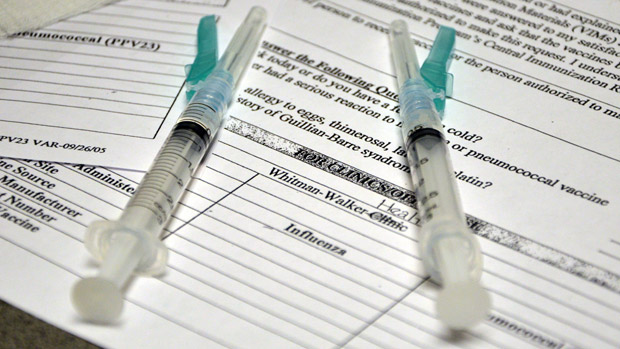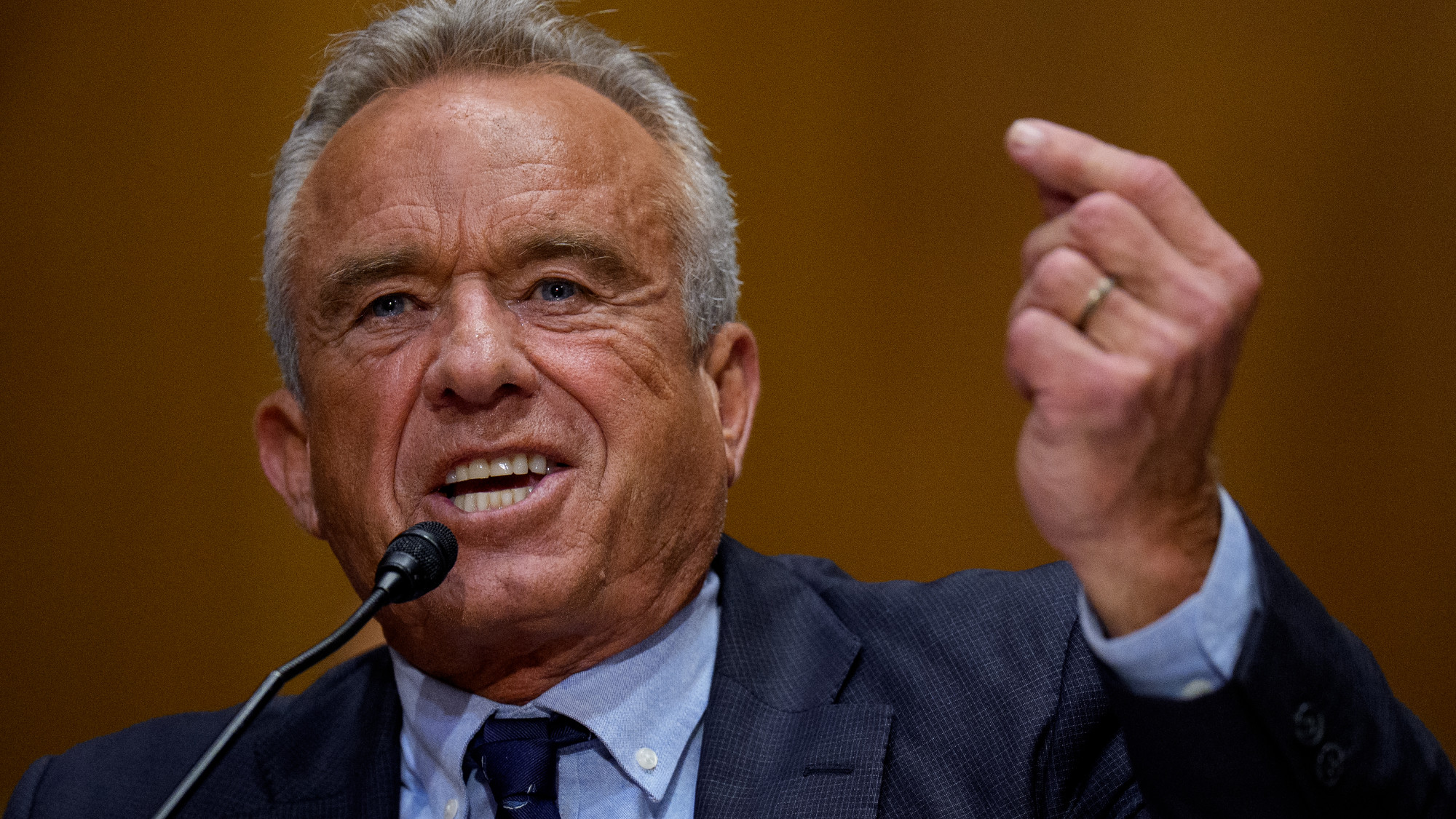Experts split over plans for post-vaccine ‘Covid passports’
Some scientists say proposal is premature without proof that vaccination stops transmission

A free daily email with the biggest news stories of the day – and the best features from TheWeek.com
You are now subscribed
Your newsletter sign-up was successful
A UK government plan to issue “immunity passports” to people who have been vaccinated against Covid-19 has divided scientific advisers, with some warning that the move could damage social cohesion and lead to more infections.
“Ministers have asked passport makers to provide Britons with secure certificates to prove they are not carrying coronavirus and help pave the way for a return to normality next year,” says The Telegraph.
Once people have been vaccinated - and issued with the documentation to prove it - they would reportedly be able to travel, work and socialise at will. According to The Sun, biometric certificates “could allow air travel to return to normal” next year.
The Week
Escape your echo chamber. Get the facts behind the news, plus analysis from multiple perspectives.

Sign up for The Week's Free Newsletters
From our morning news briefing to a weekly Good News Newsletter, get the best of The Week delivered directly to your inbox.
From our morning news briefing to a weekly Good News Newsletter, get the best of The Week delivered directly to your inbox.
However, some experts say such hopes may be premature. Vaccine trials have proved “only that the jabs reduced the likelihood of people developing symptomatic Covid-19”, scientists told The Times, and “more work need[s] to be done on how they affect transmission”.
University of Reading virology professor Ian Jones, said the passport proposal could lead to forgeries - and to job discrimination between those who have had the jab and those who haven’t.
“I think it is more important to organise a comprehensive vaccination campaign, get the vulnerable done, and hammer home the need for everyone else to take it up for the good of all,” he said.
A paper published in The Lancet last month acknowledges that some consider immunity passports “unethical and impractical”, but argues that “a strong presumption should be in favour of preserving people’s free movement if at all feasible”. A return to normality would bring both “individual and social benefits”, the authors add.
A free daily email with the biggest news stories of the day – and the best features from TheWeek.com
Some members of the Scientific Advisory Group for Emergencies (Sage) are backing the idea too. “I think a vaccine passport does make sense, at least initially,” Janet Lord, a professor of immune cell biology at the University of Birmingham, told The Times.
And while existing trials may not have provided definitive proof, “the Covid-19 vaccine developed by Oxford University and AstraZeneca is ‘clearly effective’ in reducing infections and transmission”, the Financial Times reports.
“It’s got every chance of being a very successful, very effective vaccine that can get us back to normal,” said AstraZeneca executive vice-president Mene Pangalos.
Holden Frith is The Week’s digital director. He also makes regular appearances on “The Week Unwrapped”, speaking about subjects as diverse as vaccine development and bionic bomb-sniffing locusts. He joined The Week in 2013, spending five years editing the magazine’s website. Before that, he was deputy digital editor at The Sunday Times. He has also been TheTimes.co.uk’s technology editor and the launch editor of Wired magazine’s UK website. Holden has worked in journalism for nearly two decades, having started his professional career while completing an English literature degree at Cambridge University. He followed that with a master’s degree in journalism from Northwestern University in Chicago. A keen photographer, he also writes travel features whenever he gets the chance.
-
 The environmental cost of GLP-1s
The environmental cost of GLP-1sThe explainer Producing the drugs is a dirty process
-
 Greenland’s capital becomes ground zero for the country’s diplomatic straits
Greenland’s capital becomes ground zero for the country’s diplomatic straitsIN THE SPOTLIGHT A flurry of new consular activity in Nuuk shows how important Greenland has become to Europeans’ anxiety about American imperialism
-
 ‘This is something that happens all too often’
‘This is something that happens all too often’Instant Opinion Opinion, comment and editorials of the day
-
 How corrupt is the UK?
How corrupt is the UK?The Explainer Decline in standards ‘risks becoming a defining feature of our political culture’ as Britain falls to lowest ever score on global index
-
 Childhood vaccines: RFK Jr. escalates his war
Childhood vaccines: RFK Jr. escalates his warFeature The health secretary cut the number of recommended childhood vaccines from 17 to 11
-
 The high street: Britain’s next political battleground?
The high street: Britain’s next political battleground?In the Spotlight Mass closure of shops and influx of organised crime are fuelling voter anger, and offer an opening for Reform UK
-
 Is a Reform-Tory pact becoming more likely?
Is a Reform-Tory pact becoming more likely?Today’s Big Question Nigel Farage’s party is ahead in the polls but still falls well short of a Commons majority, while Conservatives are still losing MPs to Reform
-
 Taking the low road: why the SNP is still standing strong
Taking the low road: why the SNP is still standing strongTalking Point Party is on track for a fifth consecutive victory in May’s Holyrood election, despite controversies and plummeting support
-
 RFK Jr.’s anti-vaccine crusade comes under fire
RFK Jr.’s anti-vaccine crusade comes under fireFeature Robert F. Kennedy Jr. faced a heated hearing as senators accused him of lying and spreading chaos
-
 Hostile architecture is 'hostile — to everybody'
Hostile architecture is 'hostile — to everybody'Instant Opinion Opinion, comment and editorials of the day
-
 RFK Jr. faces bipartisan heat in Senate hearing
RFK Jr. faces bipartisan heat in Senate hearingSpeed Read The health secretary defended his leadership amid CDC turmoil and deflected questions about the restricted availability of vaccines